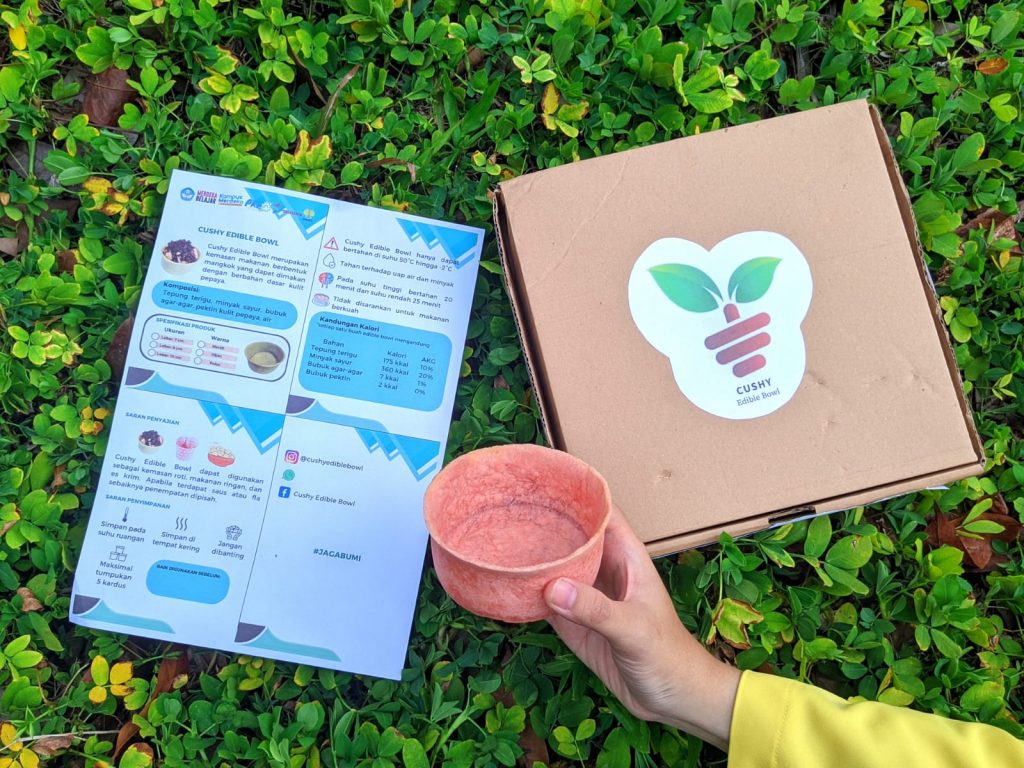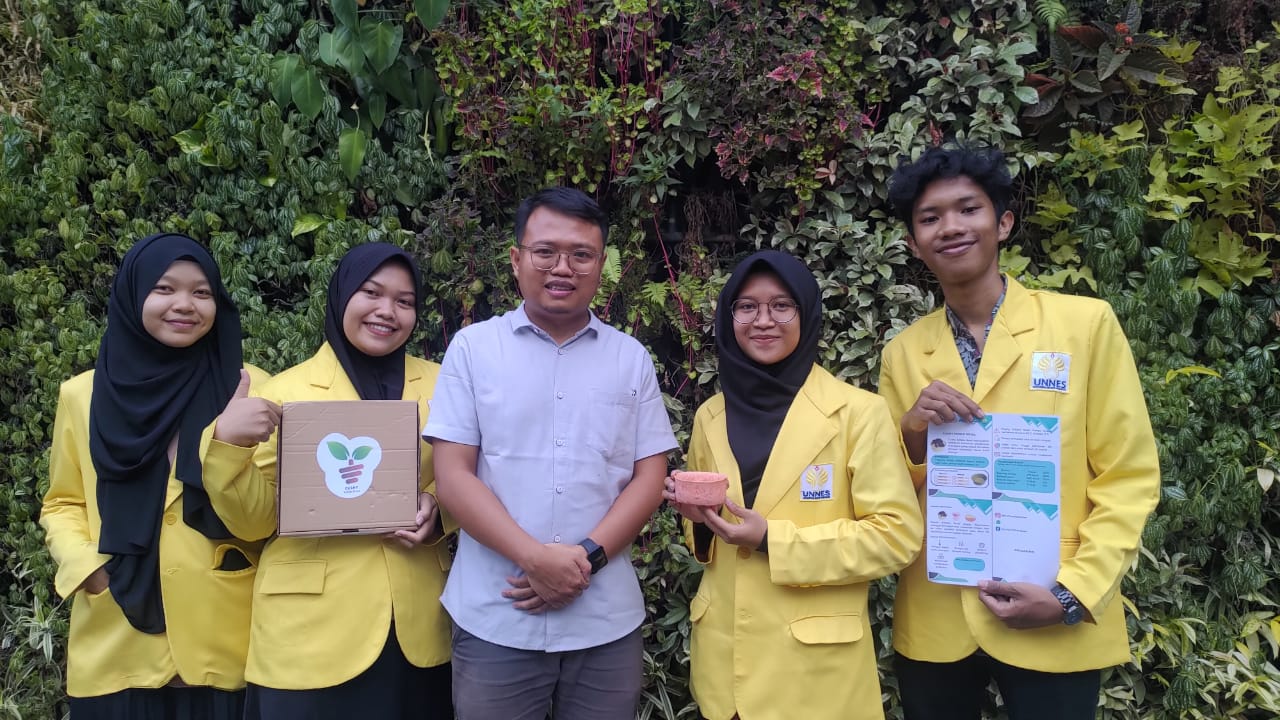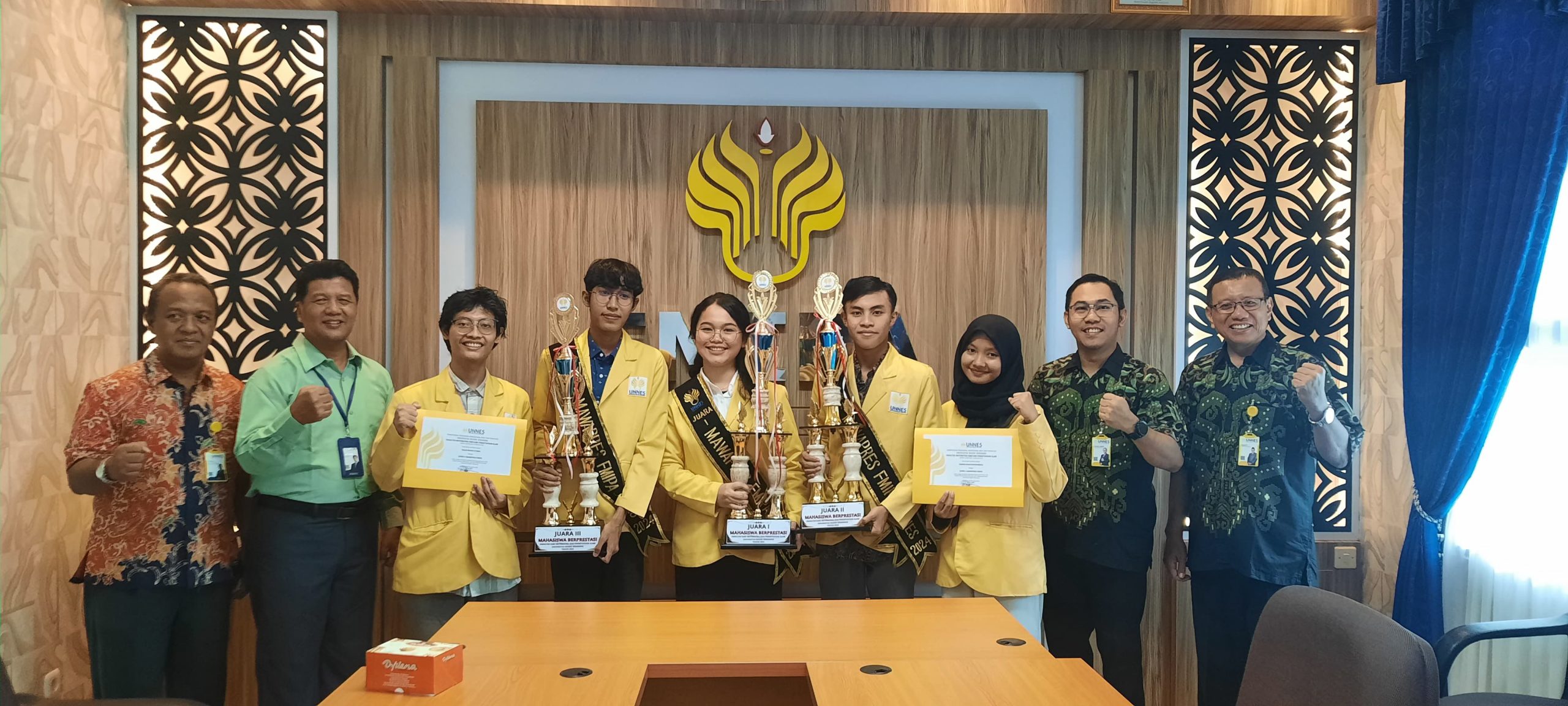Mahasiswa UNNES yang terdiri dari Cahyani Putri Kinasih, Nisfil Amelia Ramadhani, Gilang Syahbananto dan diketuai oleh Tiara Dwi Wulandari membuat alternatif kemasan makanan yang ramah lingkungan yang diberi nama “Cushy Edible Bowl”. Kolaborasi antara mahasiswa program studi pendidikan IPA, Ilmu Lingkungan, dan Pendidikan Ekonomi ini mengaku bahwa produk ini diciptakan berangkat dari keresahan akan permasalahan sampah kemasan plastik yang kian lama kian menumpuk. Berdasarkan Badan Pusat Statistik (BPS), Indonesia termasuk salah satu negara penghasil sampah plastik terbesar di dunia yang mencapai 64 juta ton per tahun. Terlebih trend makanan siap saji menggunakan kemasan sekali pakai memperburuk pencemaran lingkungan. Produk ini dapat menggantikan kemasan sekali pakai seperti paper bowl, styrofoam, paper box, dan kemasan lainnya. Edible bowl merupakan kemasan makanan berbentuk mangkok yang dapat dimakan.
Tim yang dibimbing dosen Pendidikan IPA UNNES, Prasetyo Listiaji, S.Pd., M.Sc. Itu, lolos pendanaan PKM Kementerian Pendidikan, Kebudayaan, Riset, dan Teknologi bidang kewirausahaan dengan judul “Cushy Edible Bowl Kemasan Makanan Ramah Lingkungan dari Kulit Pepaya sebagai Upaya Menanggulangi Masalah Sampah Plastik di Indonesia”. ketua tim PKM, Tiara mengatakan Cushy Edible Bowl merupakan sebuah solusi dari permasalahan yang ada saat ini. “Bagian buah pepaya yang saat ini dimanfaatkan hanya daging buahnya saja sedangkan kulit pepaya hanya dibuang begitu saja. Padahal kulit buah pepaya memiliki kandungan senyawa Padahal sebenarnya kulit pepaya memiliki berbagai kandungan yang baik bagi tubuh” jelasnya. Kulit pepaya mengandung vitamin A, vitamin B kompleks, vitamin E, folat, kalium, kalsium, dan antioksidan yang mampu memberikan elektron dan mengakhiri reaksi berantai radikal bebas. Selain itu, kulit pepaya juga dapat dimanfaatkan dalam pembuatan kemasan plastik yang dapat dimakan sebagai upaya untuk mengoptimalkan pemanfaatan kulit pepaya dan mengatasi permasalahan sampah plastik di Indonesia.

Limbah kulit pepaya didapatkan dari industri makanan dan penjual buah segar di daerah Semarang. Kebutuhan akan limbah kulit pepaya dalam pembuatan edible bowl yang cukup banyak menguntungkan para pelaku industri karena tidak pusing lagi harus membuang limbah kulit pepaya yang dihasilkan. Kegiatan ini dimulai sejak awal pelaksanaan kegiatan PKM-K yang saat ini telah berhasil menggandeng pusat industri makanan dan penjual buah segar di wilayah UNNES sebagai distributor utama kulit pepaya. Cushy Edible Bowl dapat dipesan dengan harga Rp40.000,- per kardus melalui Shopee, isntagram, facebook, maupun Whatsapp dengan link https://linktr.ee/CushyEdibleBowl. Tiara dan tim yakin bahwa udaha ini akan mencapai BEP dan mengalami profit hingga bulan Oktober nanti.
Kegiatan ini sedang berlangsung dan dilaksanakan dengan beberapa tahapan yaitu persiapan, produksi, penjualan, dan evaluasi selama 5 bulan hingga bulan Oktober mendatang. Setelah itu, tim akan mempersiapkan untuk Penilaian Kemajuan Pelaksanaan PKM (PKP2) dari Kemendikbud. Tiara dan tim berharap lolos PIMNAS tahun ini. “Melalui PKM ini kami berharap dapat berkontribusi dengan mengedukasis masyarakat dalam mengatasi permasalahan sampah plastik sekaligus meningkatkan keteramplan berwirausaha. Saya, seluruh anggota tim serta dosen pendamping juga berharap berkesempatan mengikuti Pekan Ilmiah Mahasiswa Nasional (PIMNAS) tahun ini” pungkasnya.





